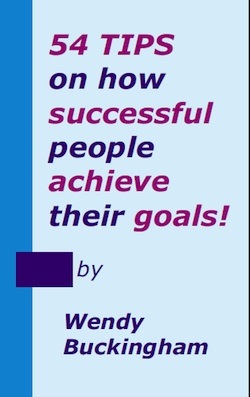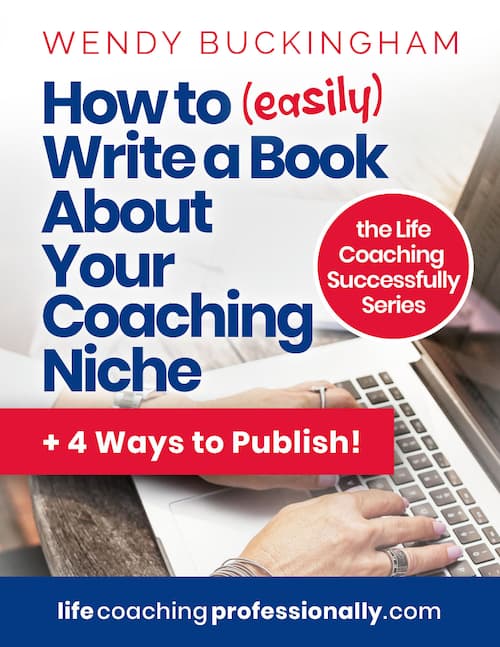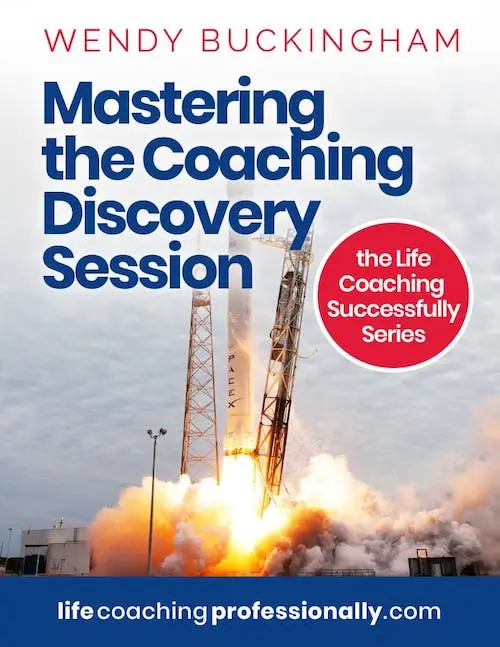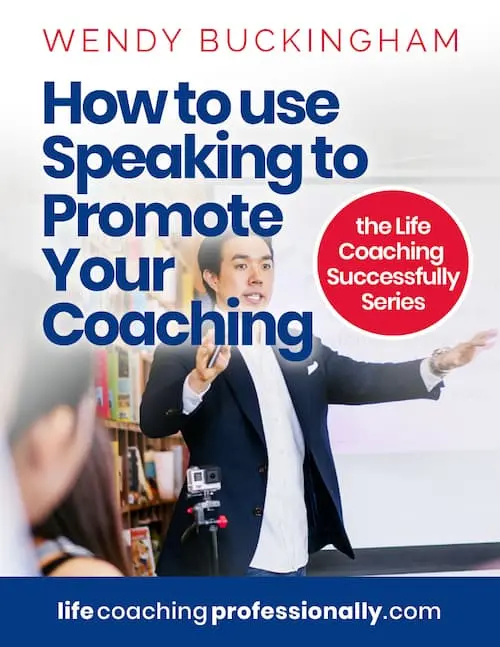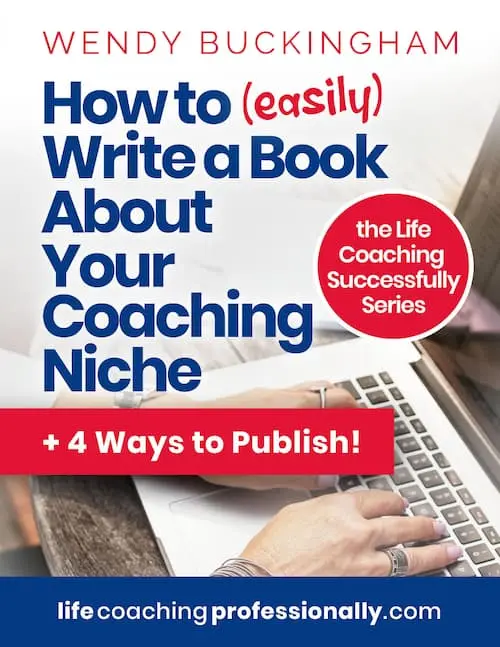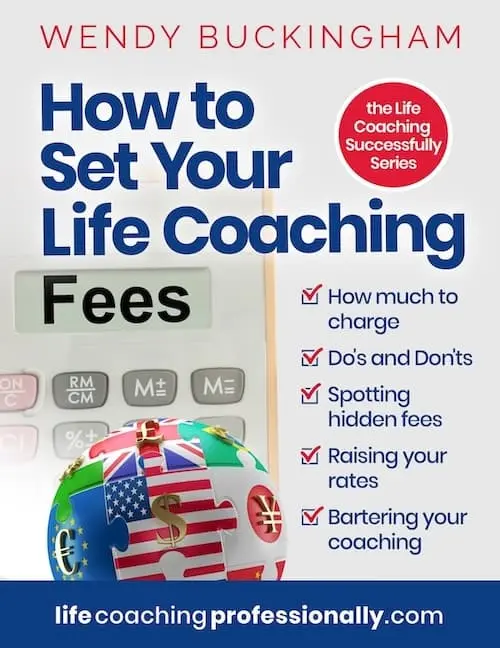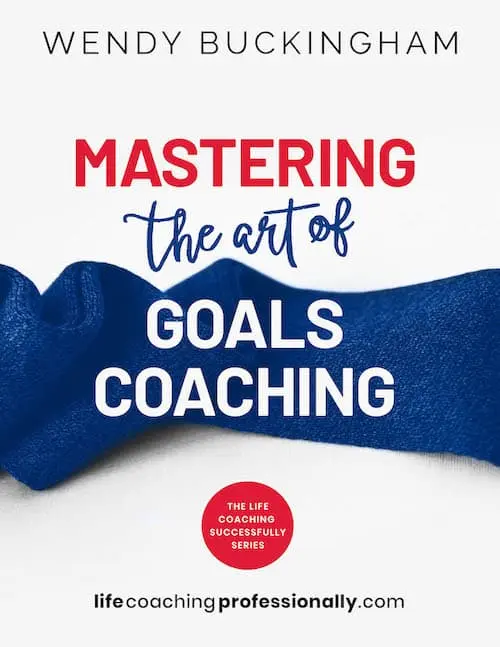- Life Coaching
- Marketing
- Writing A Book
Tips On Writing A Book To Promote Your Life Coaching
Page Summary
A book about your coaching specialty can be a really powerful marketing tool. Use these success tips on writing a book for a stress free ways of creating and publishing a printed or digital ebook.
Quick Links
I may receive commissions at no cost to you. I participate in the Amazon Services LLC Associates Program. More...
Is There A Market For Your Book? Do Your Research
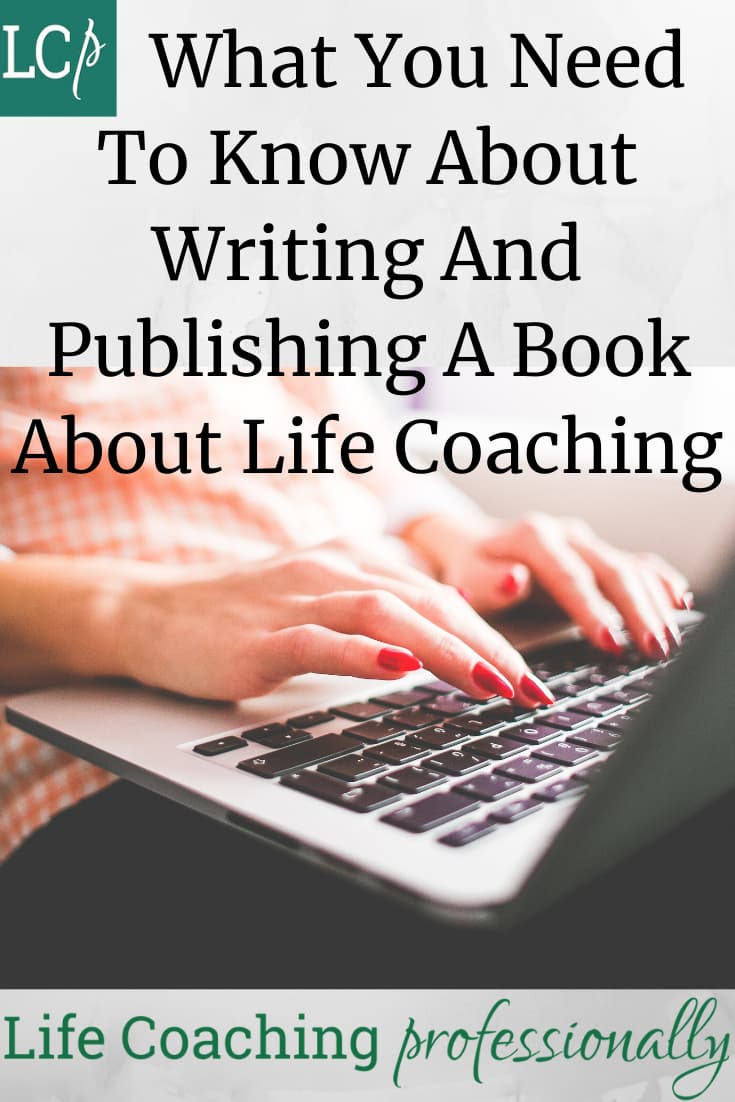
It seems just about everyone believes they have a book "inside" them, just waiting to be written and taking them to the status of "author".
But for many, that book never hits the shelves or online book store and stays "inside" as a “someday" intention instead of becoming a powerful promotional tool.
So one of the most important steps to being a successful author is to start with some carefully book writing research. So ask yourself....
Who will my book appeal to and help?
This question is important because you need a real point of difference compared with what is already available in a crowded marketplace.
Visit Amazon and some of the other online book sellers, and search your topics. Search a large bookshop bookshop to see what is already available in print. You should then aim to come up with a unique angle and/or an eye-catching title that will stand out from the other books.
How do I want my book to look and feel?
One of the most important tips on book writing is to remember it is a representation of who you are, your knowledge and your professionalism in both content and presentation.
This means that the cover design and, in the case of hard copy, the feel of the book is really important. Again, do some research online and in book stores to examine the books that instantly jump out to you. Study how they look and feel. Notice the size of the type, the colour of the cover and the typeface. If you REALLY like one, buy it so you can use it as a working model!
Make An Easy Start With A Tips Booklet
Writing a book of over a 100 pages about your coaching specialty can be a daunting and time consuming task however much you want to do it and know your stuff. Overwhelm and procrastination can set in even if you are an experienced writer!
In my research about writing my book, I discovered the easy beginners path for many type of book is to putt together a booklet of short, but invaluable tips. For me the result was "54 Tips On How Successful People Achieve Their Goals!".
It was easy to write, inexpensive to design and print either in hard copy or as an ebook, and became a fabulous to use as a promotional a give-away.
Inspired with confidence, my little tips booklet grew into a self-published goal planning and life skills book Ready Steady Goal!.
It was then picked up by a major publisher and commissioned as Ready Set Goal! and distributed internationally. I then self-published as Be Your Own Goals Coach and I have now rewiritten it as a guide for coaches as Mastering the Art of Goals coaching. I have also adapted this information to book form in How to (Easily) Write A Book About Your Coaching Niche + 4 Ways to get Published as part of my Life Coaching Successfully series.
It has been quite a journey but without that easy start with a tips booklet, becoming an author might still be in the too hard basket.
Make Your Book Writing Easier With These Six Tips
Sometimes the content will just roll of your pen or computer. And at other times things will stall and it will be a struggle. These are just a few of the tips for writing a book that I have found useful to keep up the momentum.
1. Break the content for your book down.
Write down the subjects that you are going to cover and use these as working chapter headings.
Underneath each heading, bullet point any research you need to do and what you need to cover. Then chapter by chapter fill in the information.
2. Imagine you are an instructor
If you are stuck on what to include, imagine you are giving step-by-step written instructions or teaching someone who is taking over from you what they need to know.
List out everything this person needs to know how you do everything from beginning to end including all the detail and all the pitfalls to watch for.
3. Don't worry about grammar and spelling
Avoid being too pedantic about getting every sentence absolutely right for your old English teacher!
Just get the words down on paper. There will be plenty of time to polish and proof read later .
4. Capture those fleeting thoughts
Keep a pen and notebook handy at all times or use the note facility on your phone. Even have them by your bed to capture night-time creative writing prompts that come out of your dreams.
I know from experience that thinking you will remember those brilliant but fleeting thoughts doesn't always work, so instantly record them somewhere.
5. Compile your published articles
Gather together any articles, social media comments, and any other written contributions on the subject your life coaching specialty and put them into some sort of sequence.
You may find you already have most of what you need for your book and then only need to edit and add in a few extra points or chapters.
Perhaps this should be step 1! One of the most essential of the tips on writing a book and turn your dream of becoming an author into reality is to set a powerful goal that inspires you and has a completion date.
6. Overcoming procrastination and writers block
The above tips will help avoid writers block but when the writing juices really dry up, try working on other important aspects of your book such as:
- Plan and choose illustrations or photographs.
- Jot down or sketch ideas for the cover pages.
- Research distribution options.
- List who you may need to acknowledge either in person or as a reference.
And it might help to get a change of scene by taking your laptop to the park or a favourite cafe.
Four Ways To Go About Publishing Your Book
Getting your book published and into the market place can be even more challenging that writing the words. Read on for four ways you can go about this and the option of print on demand.
- Using a publisher
- Self publishing
- Kindle and ebooks
- Print on demand publishers
- Writing and publishing services
1. Using A Publisher For Your Book - Advantages and Disadvantages
My publisher found me after I self-published Ready Steady Goal so I didn't have to experience the hassle of finding a publisher myself. So the best thing I can do is refer you to author associations that can help.
The Australian Society of Authors is a local reference for me "Down Under", in Australia, but most of their information is generic and really useful. Check to see if you have an authors society in your state or country to give you local information.
Having your book accepted and published by a publishing company has advantages and disadvantages.
The advantages of having a publisher:
It's great for the ego as proof that what you have written is thought to be good and marketable and will make money by someone other than you!
You don't have to worry about the cost of design, editing, layout, printing, paper distribution, publicity etc., etc. You sign a contract and it all happens. If the publisher thinks your book is going to sell really well, you may even get an advance.
The downside of having publisher
You have little or no control over how your book will look or be edited. (I hated the cover of Ready Set Goal that my publisher chose). The publisher will most likely discuss these items with you and be flexible on some aspects, but you need to remember that they have the last word.
Also their promised publicity may be limited and short-lived (publishers move on to the next thing very quickly) and you may end up having to organise more of your own press releases or interviews.
The low percentage of royalties will make it very hard to make a decent financial return unless you really hit the jackpot with a genuine best-seller that becomes an ongoing favourite of the coaching or associated industry.
You also need to take into account that whilst the publisher may give you a few complimentary copies you will need to buy any more (at wholesale usually).
If you do get an offer from a publisher, do read the fine print contract carefully to see what it does and does not include such as copyright restrictions and buy back clauses. Ideally have the contract checked by a lawyer.
2. The Self Publishing Path
Because getting a publisher interested in your book can be such a hassle (and even demoralising when you get rejected), more and more people choose to go down the self publishing path. This will, of course, cost you quite a bit of money up front but anything earned from sales, apart from commissions to distributors is yours.
You can either do it all yourself, from writing, to delivering to the printer, distributor, or online distributor, or outsource as much of the process as you wish or feel is better left to an en expert.
Here are three important things to remember if self-publishing:
Do Use an editor/proof reader
If you are going to go about getting published by yourself, I would strongly advise having the book proof read by an experienced editor. A good editor will not only pick up your literals but advise you where a sentence may not make sense or is not clear to a new reader.
It is well worth the investment and will save you embarrassment after the book is printed.
Make sure your Book cover design reduces well
If you are going to market your book using an online shop such as Amazon bear in mind that your cover design should reduce well, so it still looks good and the name and other information is legible when it is reproduced very small.
Get clear on your marketing and distribution
Unless you are using your coaching book purely as a give-away promotional tool, (and some people do just that) you need to get clear on how you are going to market, distribute and sell.
Otherwise you will end up with boxes of unsold books, or an eBook that just sits on your web-site going nowhere.
You can either engage someone to take care of your marketing and distribution or have a go yourself.
There are book agents as well as who specialise in book promotion and this is an option to consider if you don't have the time or the skill to do your own marketing.
3. What About Publishing E-Books?
You may decide you are simply going to produce an eBook about your coaching niche which can be read either on a computer or tablet. This is fine if you simply want to sell it through online book stores or off your website.
Amazon has free instructions on formatting your coaching book for Kindle. And there are also loads of low cost book on the subject And if formatting is really not your thing there are lots of willing experts on Fiverr or Upworks.
4. Print on demand services
If you go for the ebook option yet have aspirations to sell your book at at events or use it as a promotional tool you, will still need a hard copy version.
For print on demand (no need to pay for a big publishing run upfront) you can use Kindle Direct Publishing service or research independent companies such as lulu.com.
With on demand printers it's important to do the figures. I recently research this option for myself for my book, I found that by the time Amazon had deducted their costs I would have had to sell thousands of books before I even started to make any money.
With every digital sale, and because my book is fairly short, I decided instead to offer a free illustrated version that could be downloaded as a PDF and printed out. This has proved to be quite popular.
I tell you about this so you make sure you do some serious costing before you commit to "free on demand publishing".
Also, if you decide to outsource the formatting process, be sure to compare prices and get a firm quote that includes what will be any additional costs for alterations, etc.
5. Using Writing And Publishing Services
There are lots of companies offering to hand-hold you through the process of writing, editing, publishing and distributing your book. Their courses and services can range from excellent to pretty useless, depending on what you need, so you definitely need "caveat emptor" before you enrol.
If you decide to get help writing a book and getting it published in this way, please, please check out the credentials of the person or organisation and past results they have achieved for their authors.
Check out some of the published work that has gone through their system and speak to other authors who have used them. Make sure all that was offered, was delivered - such as editing and proofing and marketing and distribution and whether these were included or cost extra.
More Help to Grow Your Coaching Skills and Promote Yourself
I have written a range of informative books (all from my own 25+ years' experience) that will help you to authentically attract new quality clients, increase your coaching skills and promote your coaching services.
100% Satisfaction or Your Money Back
I am sure you will get real value from each of these books. However, if within 30 days of purchase you are not 100% completely satisfied, you will receive a full 100% refund.
